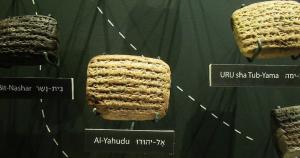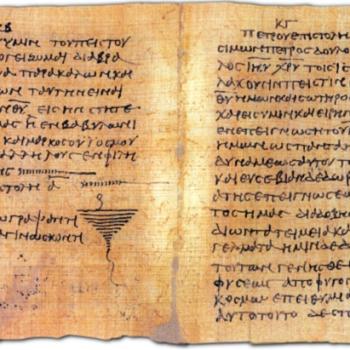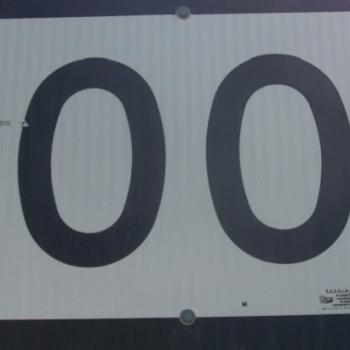Jeremiah 29:7 gives the exiles from Judah a message from God: “Seek the welfare of the city where I have sent you into exile.” Who would have imagined how faithfully those exiles would take that message and put it into action?

Who could have made this up? Here we have a town full of former exiles from Judah who have climbed the economic ladder, who have named their town after their homeland. They’re doing business in the Babylonian language, they’re using Babylonian contract law with each other, but their names are Hebrew names. You may not recognize the name Yarim-Yama, but what if I told you that was the Babylonian way to spell “Jeremiah”?
The tablets from Al-Yahudu are full of familiar names like Haggai, Zechariah, Zedekiah, Berechiah, Hananiah, Jonathan, and 70 other names that contain the name of the God of Israel! One of those names even takes the name Belshazzar and replaces the pagan god Bel with the sacred name of God! These Jews have made their home in Babylon, and are deeply involved in the welfare of Al-Yahudu and the other towns where they have settled.
Now, how did we get here? It all goes back to Jeremiah’s letter to the exiles in 594 BCE. Around the end of 595, there was an attempted coup in Babylon. Some of the kings who serve the king of Babylon meet to decide whether or not to pile on to the revolution. Zedekiah king of Judah decides not to rebel (yet!). So he sends a diplomatic letter to King Nebuchadnezzar to reassure him of his loyalty.
Meanwhile, God tells Jeremiah to write a letter to the exiles from Judah and mail it in the diplomatic mailbag. God tells Jeremiah to tell the exiles: Don’t join the revolution! And don’t listen to those so-called prophets in Babylon who say you’re going home in two years! What they’re telling you is not just a debatable opinion on which we can agree to disagree. It is a “falsehood.” “I did not send them,” says the Lord. Public opinion may have demanded the promise of a short exile, but God says that claim is a flat-out lie.
God then directs Jeremiah to give the exiles some revolutionary advice, advice that totally contradicts the position of the so-called prophets in Babylon. “Seek the welfare / well-being / shalom of the city where I have exiled you, and pray to the Lord on its behalf, for in its welfare, you will find your welfare.” Seek the shalom of the Babylonian regime who ripped you out of your homeland, and pray for their welfare and not for their downfall. (That’s a switch from the grief-stricken cry in Psalm 137, where the singer calls on God to pay Babylon back for what they did to Jerusalem.) Don’t join the revolution. Only as Babylon thrives will you thrive.
Jeremiah had been told by God not to pray for his own people. Jeremiah 7:16: “Therefore do not pray for this people, nor lift up a cry or prayer for them, nor make intercession to me; for I will not hear you.” (See also Jeremiah 11:14 and 14:11.) Don’t pray for your own people?! But now God commands them to pray for Babylon! That’s definitely love of enemies in action.
God is telling the readers of Jeremiah’s letter to settle down in Babylon, because they will die in exile. It will be 55 years before Cyrus conquers Babylon and tells the Jews they can go home. It will be another 15 years after that before they make the move. So: you can put your life on hold, which means you’ll be choosing to throw it all away. Or, you can choose to go on with your life and maximize your time on earth and make your home where God has placed you, even if it’s not where you would have chosen.
God insists that rebellion against Babylon is not an option. But God is not calling them to cave in and surrender, either. God calls for them to get involved in the welfare of Babylon.
Today, more than at any time since the days of ancient Rome, we who follow Jesus have become exiles in a world that gives God’s word the Italian salute. To some extent (like the exiles in Babylon), our own failures and mistakes may be part of the reason we are here. But we shouldn’t wait around expecting God to magically deliver us. Neither should we surrender and join the flash mob that has taken our society captive. Now is always the right time to get our act together and make the most of our time in exile, as Jeremiah calls his people to do.
Now is not the time to use the brute-force tactics of our captors. That didn’t work for the exiles of Jeremiah’s day, where the rebels ended up as the main course at Nebuchadnezzar’s barbecue. Neither did the early Christians overcome the Romans that way. What God calls us to do is what the Babylonian exiles did and what the early church did: seek the welfare of the city where God had sent them into exile, and pray to the Lord on its behalf. The Babylonian exiles became an indispensable part of their community. And in the process, they earned street credibility for Israel’s God.
Seeking the welfare of our community in a world that is hostile to our faith is not for the squeamish. It’s not for the half-hearted or cynical or bewildered or angry or dispirited. And we can’t let resistance or resignation or resentment get in our way. I don’t claim to be the veteran or the expert on how to do it. But I can see that God wants me to get over my attitude problem with being an exile and dig in for the long haul.
Just as Mao went on his famous “Long March” of exile before he came back to take over mainland China, God has assigned us to a “Long March” of our own. We may not live to see our efforts rewarded on earth. But God says, Don’t put your life on hold. Don’t wish for another life, where obedience is easy. Invest yourself in your place of exile, because in its welfare, you will find your welfare. God says in Jeremiah 29:11, “For surely I know the plans I have for you, says the Lord, plans for welfare and not for harm, to give you a future and a hope.”












